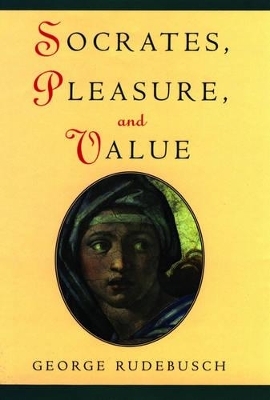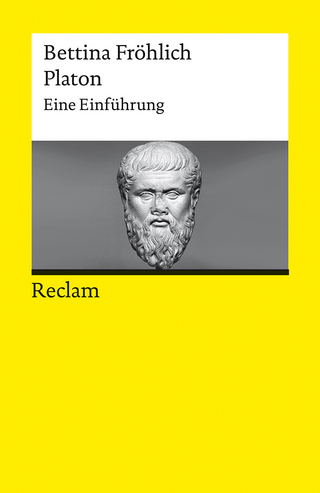
Socrates, Pleasure, and Value
Seiten
1999
Oxford University Press Inc (Verlag)
978-0-19-512855-0 (ISBN)
Oxford University Press Inc (Verlag)
978-0-19-512855-0 (ISBN)
Rudebusch addresses the question of whether Socrates was a hedonist. In attempting to determine Socrates's position, he examines the passages in Plato's early dialogues that are most important to this controversy and draws important distinctions between two kinds of pleasure and between hedonism and Protagoreanism.
Plato's early Socratic dialogues on the nature of virtue, knowledge, and the good life stand at the core of Western ethical thought. Yet, basic questions about these dialogues and about Socrate's positions in them remain the subject of continual debate, largely because of the inconsistent nature of many of Socrates's statements.
Perhaps the most divisive questions are those surrounding Socrates's position on hedonism, the view that the good is, at bottom, a matter of pleasure. In this work, George Rudebusch addresses whether Socrates was a hedonist. Rudebusch claims that this issue is so basic that, unless it is resolved, no adequate assessment of the Socratic dialogues' place in the history of philosophy can be made. In attempting to determine Socrates's position, Rudebusch examines the passages of Plato's early dialogues that are most important to this controversy and draws important distinctions between two kinds of pleasure and between hedonism and Protagoreanism. His conclusion, that Socrates was a "modal hedonist", rather than a "sensate pleasure" hedonist, is supported by some very original readings of the early dialogues.
Plato's early Socratic dialogues on the nature of virtue, knowledge, and the good life stand at the core of Western ethical thought. Yet, basic questions about these dialogues and about Socrate's positions in them remain the subject of continual debate, largely because of the inconsistent nature of many of Socrates's statements.
Perhaps the most divisive questions are those surrounding Socrates's position on hedonism, the view that the good is, at bottom, a matter of pleasure. In this work, George Rudebusch addresses whether Socrates was a hedonist. Rudebusch claims that this issue is so basic that, unless it is resolved, no adequate assessment of the Socratic dialogues' place in the history of philosophy can be made. In attempting to determine Socrates's position, Rudebusch examines the passages of Plato's early dialogues that are most important to this controversy and draws important distinctions between two kinds of pleasure and between hedonism and Protagoreanism. His conclusion, that Socrates was a "modal hedonist", rather than a "sensate pleasure" hedonist, is supported by some very original readings of the early dialogues.
1. Introduction ; 2. Plato's Aporetic Style ; 3. Ethical Protagoreanism ; 4. Callicles' Hedonism ; 5. Callicles Refuted ; 6. Death Is One of Two Things ; 7. The Intrinsic Value of Sense, Pleasure and Pain ; 8. The Righteous Are Happy
| Erscheint lt. Verlag | 30.9.1999 |
|---|---|
| Verlagsort | New York |
| Sprache | englisch |
| Maße | 236 x 157 mm |
| Gewicht | 445 g |
| Themenwelt | Geisteswissenschaften ► Philosophie ► Philosophie Altertum / Antike |
| Geisteswissenschaften ► Sprach- / Literaturwissenschaft ► Anglistik / Amerikanistik | |
| Geisteswissenschaften ► Sprach- / Literaturwissenschaft ► Literaturwissenschaft | |
| ISBN-10 | 0-19-512855-9 / 0195128559 |
| ISBN-13 | 978-0-19-512855-0 / 9780195128550 |
| Zustand | Neuware |
| Haben Sie eine Frage zum Produkt? |


